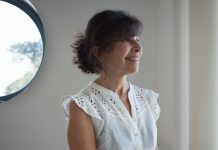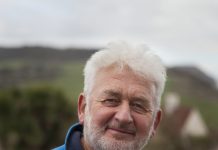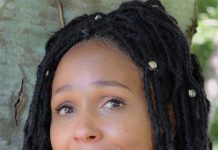Penny Johnstone met Hugh Clark MC, at his home in Crewkerne. This is Hugh’s story:
‘Fourth of five boys, I was born in 1923 in Chingford, Essex, as was Mary, my wife. However, her grandfather had a tailoring business in Crewkerne and both her grandparents and great-grandparents are buried there. We moved down when I retired in 1987.
My parents were Christian Brethren who are probably the most non-conformist of the non-conformist churches. At the church we attended, they had a special mission for children that involved a lanternslide show illustrating the story of Pilgrim’s Progress. Its horror pictures would be censored now, but the fright, more than anything, was what really led to my conversion at the early age of ten.
When the war started I was still at school so I didn’t think it would really affect me. But when I was nearly 18, I realised that people were being called up and a certain number were being sent to the coalmines. That filled me with horror so I began to think about volunteering. At the time I was working in my father’s plastics factory. Their main line was combs, but their involvement in war work and experimentation led to them becoming pioneers in squeezy bottles. When I told my manager I was joining the army he said: “You can’t do that, these are reserved works”, but my reply was “You try and stop me.”
I settled on the Royal Artillery as being not so bad: you had transport, you weren’t right up at the front and best of all, with the right exam results you could go in with a view to a commission and spend the first six months at university before training. Ironically I ended up in the Infantry and was posted to a glider-borne battalion. Kings College, Newcastle, turned out to be rather irrelevant, but I achieved matriculation, so had something to put on my CV. I was commissioned into the RA on 4th July, 1943.
As a Christian I think killing is wrong, but I don’t look upon war as murder. As information gradually came out about the horrors going on in Germany, I realised we had to put a stop to it. I think being an officer in action was easier than being a private soldier; you didn’t have time to think about yourself. In March 1945, my battalion in 6th Airborne Division, took part in the landing, east of the river Rhine with the brief of taking a bridge over the Issel. I was responsible for the lives of 28 men in a life and death situation and although only 21, matured very quickly. It was only after the war that the nightmares started.
Looking back at the incident that earned me the Military Cross – blowing up the bridge – when we had fixed bayonets and were charging, with no idea what we might meet in the pitch dark. I think in those circumstances you just accept responsibility, take command and make the decisions necessary.
Palestine, where I was posted later, was difficult. It was a very volatile time, peacekeeping between Jews and Arabs, liked by neither. Jewish refugees from war-torn Europe were allowed in on a quota basis, but many arrived illegally in small, overcrowded boats, enduring terrible hardship. We had the unpleasant job of trying to round them up for detention, which involved searching villages and houses, tearing up floorboards and looking in cupboards. I was relieved when in March 1947 I returned home to be demobbed, but while in Palestine I had the opportunity to visit many places of biblical interest and was baptised as a Christian in Jersusalem.
Adjustment was hard: one day you were a captain in the army with authority and the next you were in civilian clothes and just a nobody. The Ministry of Labour offered me a three-month business-training course, but I was now married with less money to live on than I’d been paid in the army.
Eventually I got a job with a firm of flour-millers, Heygates of Northampton. I was with them for twenty years and during this time became a Crusader leader, running a boys’ bible class, rewarding work that lasted thirty years.
Soon after moving to Crewkerne, we responded to the Civic Society’s request for volunteers to set up a museum. Within three years Mary was chairman of the committee and I was secretary. We set it up in 1987, but had to find new premises after five years. People thought we were mad; when we found the present building in Market Square, it was all boarded up. There were rooms upstairs where you had to walk the plank because the floor had caved in. In the back part the main beams had rotted through. Luckily the Lottery came along and we managed to get a grant of £408,000. After everyone’s hard work we were delighted when Princess Anne agreed to open the new museum in 2000.
We are no longer involved, but Mary was awarded an MBE for her efforts. We’ve made no end of friends down here and are active members of St Bartholomew’s Parish Church.
Our four children have all done well for themselves and we now have 11 grandchildren and four great-grandchildren. Crewkerne is lovely, retirement has been really good and in many ways it has been the happiest part of our 61 years of marriage.’









